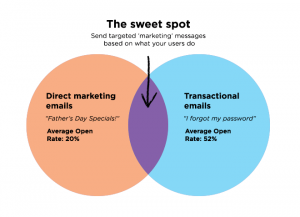The question is asked: Are there moments in our day that matter far more than others—when the way we behave has a profound and disproportionate effect on many things that follow? And secondly, if such moments exist, what must we do during those times to ensure the subsequent effects of our response are the best they can be?
More than three decades ago, my co-authors and I embarked on a study to discover these crucial moments. We began this search through a blind study of “good” and “great” managers. We asked leaders to give us a list of twenty-five of their stellar managers and twenty-five “good but not great” ones. Our job was to follow these 50 managers around and guess who belonged on which list. We hoped this would be a way to validate whether we had identified truly crucial moments.
While we set aside six months for the study, the crucial moments were obvious within hours. Right away, we noticed the moments that made the biggest difference in a manager’s effectiveness were situations where they had to address an issue with another person or group of people. “Communication” in general was not the crucial moment. It was communication about a topic that had three properties: 1) high stakes; 2) opposing opinions; and 3) strong emotions.
The differences between merely “good” and “great” managers were striking. The “good” managers tended to procrastinate, side step or sugarcoat the real issues. When things got really tense, they occasionally spoke up—but they did it in a way that damaged relationships. The “great” ones had entirely different tendencies. They tended to speak up more quickly and were far more direct—but they did it in a way that was remarkably unifying, calming and respectful.
So we assembled our guesses about good and great managers based on this criterion and found that these crucial moments were 100 percent predictive of managerial genius.
That flagship study began our unintended voyage into a study of crucial conversations. We’ve found, for example, that the capacity to master crucial conversations does not simply predict individual managerial effectiveness—it is also one of the most potent drivers of organizational performance. Here’s a sampling of what we know about crucial conversations from our ongoing study.
The Costs of Conflict Avoidance. According to our research, 95 percent of a company’s workforce struggles to confront their colleagues and managers about their concerns and frustrations. In the study of more than 600 people, we found that employees waste an average of $ 1,500 and an 8-hour workday for every conflict they avoid. In extreme cases of avoidance, an organization’s bottom line can be hit especially hard. (Full study at https://www.vitalsmarts.com/resource-center/research/.)
Fiscal agility. We studied more than 400 companies who struggled to restructure financially in the face of hard economic times. This study of 2000 managers revealed that how quickly and how well an organization makes financial adjustments depends on how well leaders hold four specific conversations. For example, when managers could not speak up about financial “sacred cows” in their company, the pace of response was five times slower and the quality of the response — as measured by company profitability — was ten times worse. What differentiated companies that responded wisely and quickly was not the size of their financial gap, but how skillfully and consistently people raised four very crucial conversations that inevitably occurred in the process. (Full study at www.vitalsmarts.com/financialagility).
Silence Fails. We studied more than 2200 projects and programs attempted at hundreds of organizations worldwide and found that you can predict months or years in advance, and with close to 90 percent accuracy, which projects will fail. We found that the predictor of success or failure was whether people could skillfully raise five specific concerns that inevitably arise during the life of an initiative.
But, as we’ve seen in many studies, these issues were not the problem. The problem was the silence. In those organizations where people candidly and effectively spoke up about these concerns, the projects were less than half as likely to fail. (Full study at www.silencefails.com.)
The Solution
Most leaders have it wrong. They think organizational productivity and performance are about policies, processes, structures or systems. So when their software product doesn’t get shipped on time, for example, they benchmark others’ development processes. Or, when productivity lags, they tweak their performance management system. If teams aren’t cooperating, they restructure. Our research shows these changes fail more often than they succeed. That’s because the real problem wasn’t process, system or structure—it was behavior. The key to real change is not just to build a great process—it’s for people to hold each other accountable to use the process. And that requires crucial conversations.
What 30-plus years of research into crucial moments has taught me is that one of the most peaceful and productive ways to bring about change is to become far more skillful at handling just these kinds of crucial moments.
(234)






